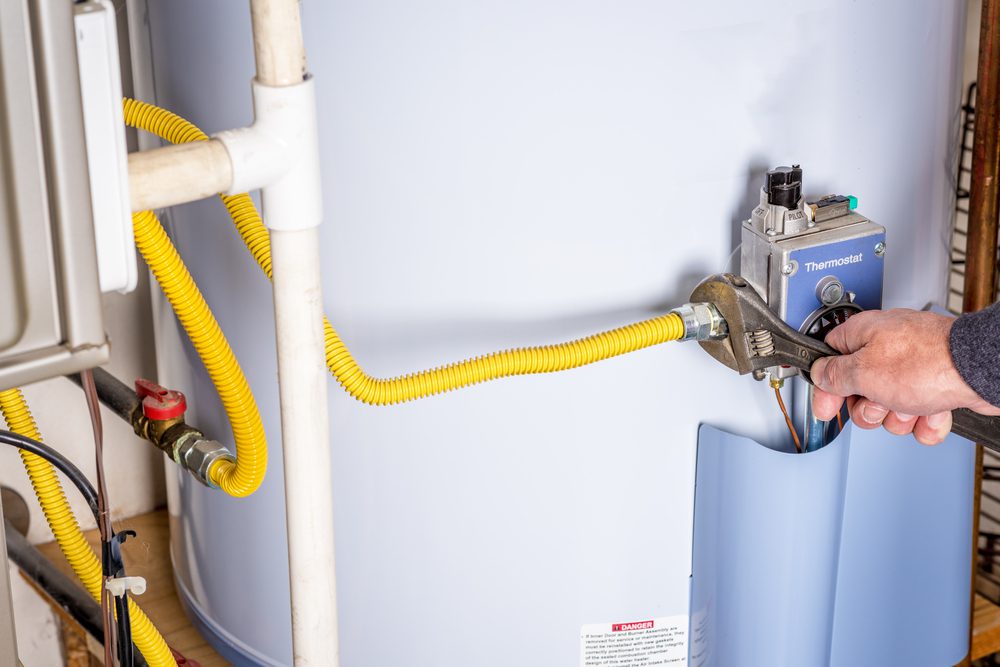What To Do For Regular Heater Problems
What To Do For Regular Heater Problems
Blog Article
Just about every person may have their private assumption about Common Problems with Your Home Water Heater.

Visualize beginning your day without your routine warm shower. That currently sets an inadequate tone for the remainder of your day.
Every residence requires a reputable water heater, but only a few understand just how to take care of one. One very easy method to maintain your water heater in leading form is to look for mistakes routinely and repair them as soon as they show up.
Remember to turn off your water heater prior to sniffing around for faults. These are the water heater mistakes you are most likely to experience.
Water also warm or also cool
Every hot water heater has a thermostat that establishes how warm the water gets. If the water entering into your residence is as well warm in spite of establishing a hassle-free optimum temperature, your thermostat might be defective.
On the other hand, also cold water might result from a fallen short thermostat, a damaged circuit, or inappropriate gas circulation. As an example, if you use a gas water heater with a broken pilot burner, you would certainly get cold water, even if the thermostat is in ideal problem. For electric heating units, a blown fuse might be the wrongdoer.
Not enough hot water
Hot water heater been available in many dimensions, relying on your warm water needs. If you lack warm water prior to everybody has actually had a bathroom, your hot water heater is as well tiny for your family size. You should take into consideration setting up a larger hot water heater container or selecting a tankless hot water heater, which uses up less space and also is more sturdy.
Odd noises
There are at least five type of noises you can speak with a hot water heater, however one of the most usual analysis is that it's time for the hot water heater to retire.
To start with, you need to know with the typical appears a water heater makes. An electrical heater may seem different from a gas-powered one.
Popping or banging sounds generally suggest there is a slab of sediment in your storage tanks, and also it's time to clean it out. On the other hand, whistling or hissing audios may merely be your shutoffs letting some pressure off.
Water leakages
Leakages might come from pipelines, water connections, shutoffs, or in the worst-case scenario, the tank itself. Gradually, water will corrode the container, as well as find its escape. If this happens, you need to replace your hot water heater immediately.
However, before your change your entire tank, make certain that all pipelines remain in location and that each valve works flawlessly. If you still need aid identifying a leakage, call your plumber.
Rust-colored water
Rust-colored water means among your water heater components is rusted. Maybe the anode pole, or the tank itself. Your plumber will certainly have the ability to recognize which it is.
Lukewarm water
No matter exactly how high you established the thermostat, you will not get any type of warm water out of a heating system well past its prime. A water heater's effectiveness might reduce with time.
You will also get lukewarm water if your pipelines have a cross connection. This indicates that when you turn on a tap, hot water from the heating system flows in alongside regular, cold water. A cross connection is very easy to spot. If your hot water taps still pursue closing the water heater valves, you have a cross link.
Discoloured Water
Corrosion is a significant source of filthy or discoloured water. Corrosion within the water container or a falling short anode pole could create this discolouration. The anode rod safeguards the tank from rusting on the inside and also ought to be examined annual. Without a pole or an effectively working anode pole, the warm water rapidly wears away inside the storage tank. Call a specialist hot water heater service technician to figure out if changing the anode rod will certainly repair the trouble; otherwise, replace your water heater.
Final thought
Ideally, your water heater can last ten years before you require an adjustment. However, after the 10-year mark, you might experience any one of these faults more regularly. At this moment, you need to add a new hot water heater to your budget.
How To Troubleshoot 3 Common Water Heater Problems in Twin Cities
The Water Heater Is Leaking
A leaky cold water inlet valve A loose pipe fitting A leaky temperature and pressure relief valve A corroded anode rod A cracked tank Turn Off Your Water Heater:
Shut off your gas water heater by turning the gas valve on the unit to the “OFF” position. Shut off your electric water by switching its power off at your electrical panel. Look for a two-pole breaker labeled “water heater” and turn it to the “OFF” position. Move the ball valve connected to the water heater to be perpendicular to the piping at a 90° angle. Look for the Leak:
Depending on whether the water is coming from the tank's top or bottom, you’ll want to look for the leak in different locations.
If the leak comes from the top of the tank, carefully look for water escaping from the cold water inlet valve or loose pipe fittings. Rusted hot and cold water valves can have loose connections with the tank, with water leaking out of them.
https://mspplumbingheatingair.com/blog/how-to-troubleshoot-3-common-water-heater-problems
I was made aware of that article on Water Heater Repair and Troubleshooting through a good friend on another blog. Sharing is nice. You won't know, you may be helping someone out. Many thanks for your time invested reading it.
For clarity, dial! Report this page